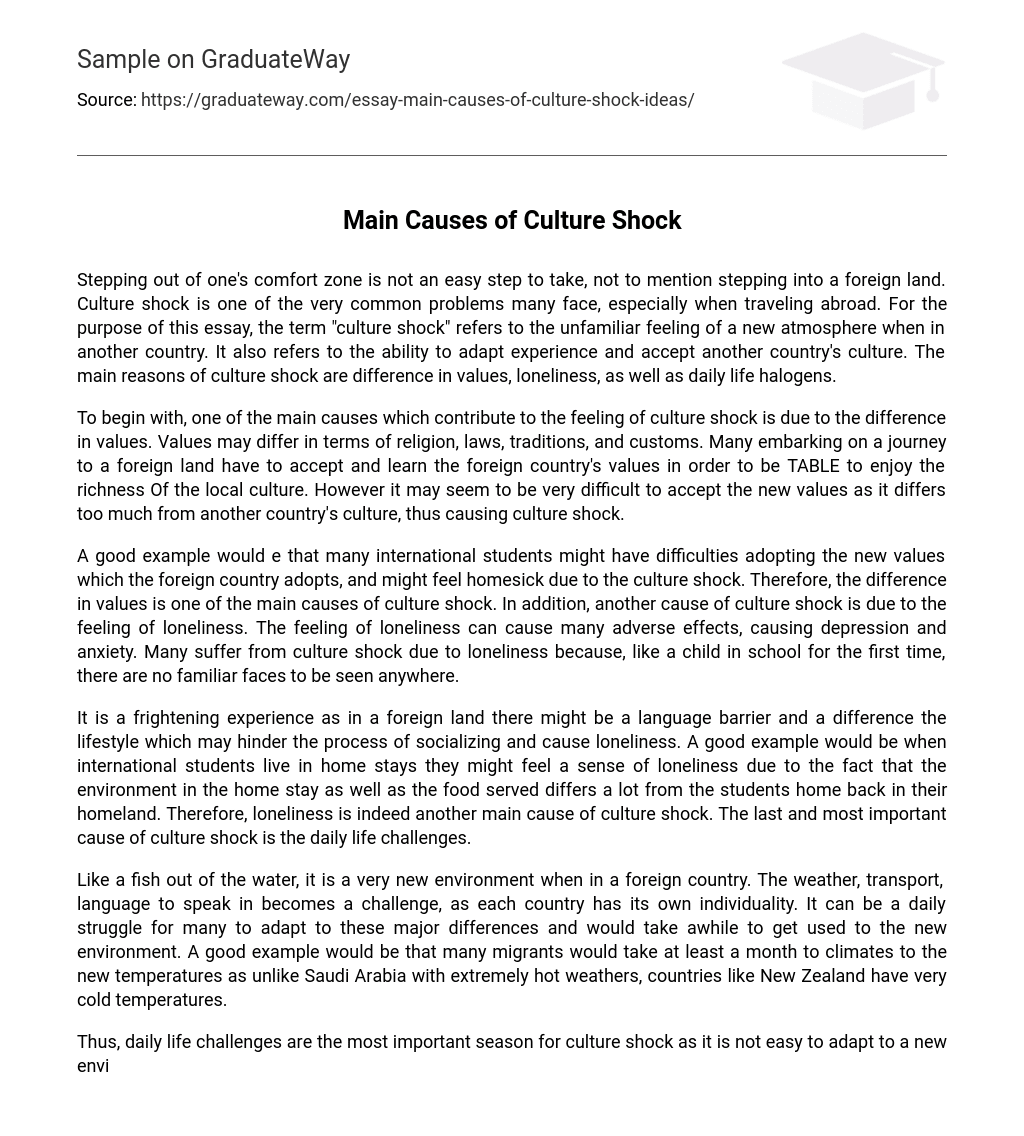Stepping out of one’s comfort zone and entering a foreign land is a challenging endeavor. Culture shock, a prevalent issue when traveling internationally, encompasses the unfamiliarity of a new environment and the process of adapting to and understanding another country’s culture. This phenomenon is primarily caused by disparities in values, feelings of isolation, and the difficulties of navigating daily life.
Culture shock can occur due to variations in values, including religion, laws, traditions, and customs. When visiting another country, it is important for individuals to acknowledge and comprehend these values in order to truly understand the local culture. However, embracing unfamiliar values can be difficult, especially if they greatly deviate from one’s own cultural upbringing, resulting in the sensation of culture shock.
One contributing factor to culture shock is the difficulty international students encounter in adjusting to the new values embraced by their foreign country. This can result in homesickness and challenges with adaptation. The discrepancy in values plays a significant role in causing culture shock.
Furthermore, another element that leads to culture shock is the sense of isolation, which can have adverse effects such as depression and anxiety. Many individuals undergo culture shock due to feelings of loneliness, as they find themselves in an unfamiliar environment akin to a child starting school without any familiar faces around.
Experiencing culture shock in a foreign country can be overwhelming, as it involves various challenges. These challenges include language barriers and adjusting to different lifestyles, which can impede social interaction and result in feelings of isolation. This is especially noticeable among international students who live with host families, as the stark differences in surroundings and cuisine compared to their home countries may contribute to their sense of loneliness. Thus, loneliness is a significant consequence of culture shock, alongside the daily life challenges that also serve as a primary cause.
Being in a foreign country is similar to feeling out of place, just like a fish out of water. Every aspect, from the weather and transportation to the language, poses difficulties due to each country’s distinct qualities. Adapting to these disparities can be a daily challenge for numerous individuals, requiring time to become accustomed to the unfamiliar surroundings. For instance, migrants typically require at least a month to adjust to new temperatures, particularly when transitioning from extremely hot climates such as Saudi Arabia to countries with significantly colder temperatures like New Zealand.
Adjusting to a new environment can be difficult, particularly in everyday life. This is the pivotal time for experiencing culture shock, which arises from conflicting beliefs and values, initial feelings of being disconnected from home, and the daily obstacles encountered. The challenges faced on a daily basis are likely the most influential element. These difficulties can lead to inconvenience and necessitate individuals to undergo a transitional phase in order to deal with culture shock.





